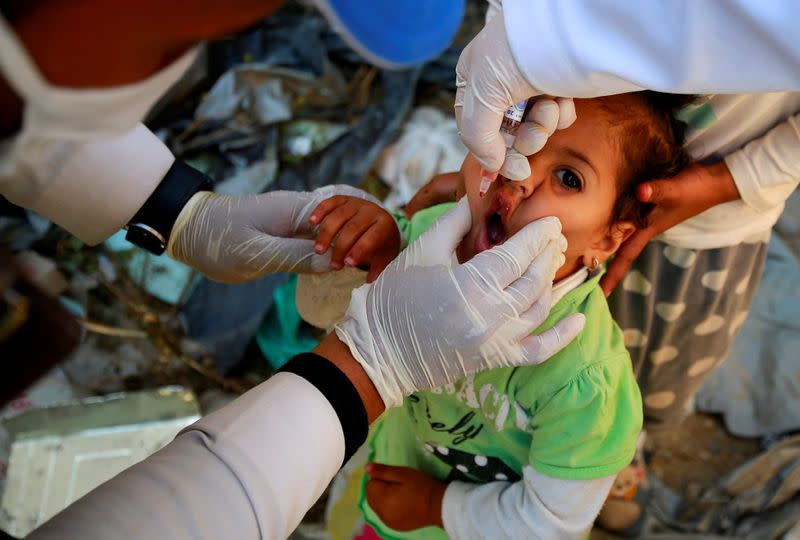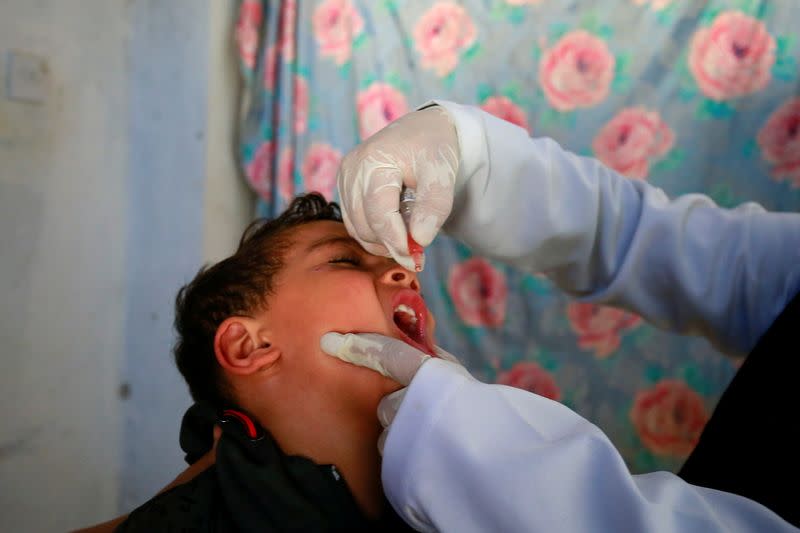Yemen pushes polio immunization in bid to stem outbreak
SANAA (Reuters) - Yemeni health worker Fairouz Sanad lugs a coolbox of polio vaccines from house to house, dripping the liquid into children's mouths hoping to stop an outbreak of the paralysing virus largely eradicated globally.
As the world focussed on COVID-19 this year, the United Nations in August declared an outbreak in Yemen of the virus that can cause permanent paralysis, with children most at risk.
Wild polio today is found only in Afghanistan and Pakistan. But in populations with low vaccination rates - common in remote parts of war-torn countries like Yemen - the weakened polio virus used in vaccines can circulate and mutate, also causing paralysis. This is called a vaccine-derived polio outbreak.
Sanad, a volunteer, is taking part in a three-day campaign finishing Monday run by the World Health Organisation and U.N. children's agency UNICEF to vaccinate children across Houthi-controlled north Yemen.
The rest of Yemen, under the control of the internationally-recognised government, will be vaccinated next week, WHO representative Abdel Nasser said in Sanaa. The aim is to reach 5.5 million children under five.
"We sometimes face the difficulty of families rejecting us. They hesitate to vaccinate, fearing that it is something dangerous, coming from outside. We try to convince them that this is nothing to be feared," said Sanad.
Travelling the streets in a minivan with a loudspeaker announcing the campaign, the team marks house doors with chalk to show where vaccines have and have not been administered as they move through narrow alleys and stairwells.
The August outbreak was detected in the country's remote north-west, in areas not reached by vaccines for a long time, UNICEF said in September.
"Significant challenges and delays in the shipment of stool samples from Yemen during the last two years have resulted in delayed detection ... Local impediments, including security, limit the application of internationally recommended protocol of house-to-house vaccination campaigns," UNICEF said.
WHO's Nasser said health teams face big problems in distributing supplies for immunisations, but said all were working hard to keep up routine vaccinations.
(Reporting by Reuters Yemen team; Writing by Lisa Barrington)

 Yahoo Finance
Yahoo Finance 

